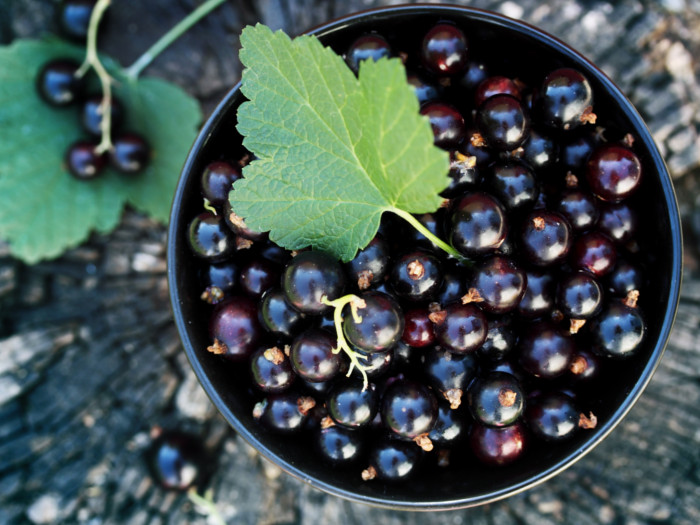Rutin is a bioflavonoid found in certain plant-based foods that offers a broad range of health benefits and is gaining popularity as a health supplement.
What is Rutin?
Rutin is a bioflavonoid that can be derived from a number of plants and fruits. It is known by many other names, such as rutoside and sophorin, but rutin is the most widely used name for this flavonoid. This key compound has various antioxidant properties and has been researched in relation to a wide range of preventative and curative possibilities. It is used in both holistic and medical approaches to care. It is possible to acquire this bioflavonoid through alterations to your diet or in supplement form. [1]
Potential Health Benefits of Rutin
Let us take a look at the potential health benefits of rutin.
- Aids Circulation: Traditionally, rutin is believed that rutin both strengthens and improves the flexibility of the blood vessels. This improves our ability to circulate blood throughout the body, boosting energy levels and ensuring that toxins are properly removed and managed. Furthermore, this strengthening of the blood vessels could help the symptoms of related diseases, such as varicose veins, hemorrhoids, and bruising. According to a study published by Dr. K.F.R. Santos et al. in Pharmacological Research, [2] rutin is particularly good at managing triglyceride levels in the body.

Blackcurrants were banned in the US in the early 1900s because they spread a fungus that kills white pine trees. Photo Credit: Shutterstock
- Lowers Cholesterol: Evidence suggests that the antioxidants in this compound help to lower cholesterol, which assists in maintaining a healthy cardiovascular system.
- Reduces Risk of Cardiovascular Disorders: Along with lowering cholesterol, it is thought that rutin can deter blood clots from forming in the body. Blood clots can lead to heart attacks, pulmonary embolisms, and strokes. [3]
- Eases Symptoms of Arthritis: Studies have shown the antioxidant and anti-inflammatory properties in rutin can ease the pain caused by arthritis and improve the functioning of the knees. If you choose to use this supplement for osteoarthritis, it is often recommended that it be taken with the proteins bromelain and trypsin. [5]
- Could Reduce Post-Surgical Swelling: There is some evidence to show that taking a supplement containing rutin and other components (such as trypsin or papain) reduces the swelling that occurs after surgical operations, such as breast removal.
- Reduces Signs of Aging: Rutin is sometimes included in skin products, as it’s thought to have anti-aging properties that help reduce wrinkles and improve skin elasticity as we age.
- Detoxifies the Body: Rutin binds to free radicals that can damage and prematurely age the body. This neutralizes their effect and allows the body to expel them before they can cause oxidative stress, inflammation, and other chronic conditions. According to a study published in the Journal of Food Science and Technology, this compound demonstrated a very high radical-scavenging potential in comparison to other similar antioxidants. [6]
- Anti-Cancer: A number of studies have found that rutin can be an effective supplement to more formal treatments against cancer. [7]
- Meniere’s Disease: Meniere’s disease is a serious condition that results in tinnitus, dizziness, and intermittent loss of hearing. The Physicians’ Desktop Reference [8] states that rutin can be used to treat Meniere’s disease.
- Ease Mucositis: Mucositis is the frequent and unpleasant swelling side effect caused by some cancer treatments. It is thought that this flavonoid can also be used to prevent this condition.
How to Add Rutin in your Daily Diet?
Rutin is found in high concentrations in fruit and vegetables, such as:
- Rosehips
- Black currants
- Buckwheat
- Lime rinds
- Lime tree flowers
- Black and green tea
- Apple skins
- Elderflowers
- St John’s Wort
- Figs
- Asparagus
Try making jams out of black currants or rose hips, as these are excellent sources of this substance that will see you through the winter months. Buckwheat noodle soup or asparagus salad is also an excellent rutin-rich recipe that is healthy, nutritious, and surprisingly easy to make. [9]
Supplement Form
If you don’t intend to change your diet too extensively, this flavonoid also comes in supplement form, in hard or gel capsules. They can be taken after meals with a glass of water. If you choose to take the supplement of this form, it’s important to buy the tablets from a verified source, and follow the recommended guidelines on the bottle or the instructions of a medical professional. A recommended supplement is two 500 mg tablets per day. Key sources of rutin for medical and supplemental use are buckwheat, the Japanese pagoda tree, and Eucalyptus leaves. These [10] tablets should be stored in a dry, dark, and cool location.
Side Effects
The intake of rutin that is naturally occurring in foods is likely to be safe for anyone. However, do not take rutin supplements if you are pregnant, trying to become pregnant or breastfeeding. Taking this compound in supplement form could cause a number of side effects, such as an upset stomach, headaches, flushing skin, anxiety, blurred vision, stiffness, skin rash, fluid build-up in the knees or irregular heartbeat. There is a small chance of someone having an allergic reaction to this flavonoid in high doses, in which case you must seek immediate medical attention. It’s not advisable to take different combinations of bioflavonoids without clear advice from a doctor.
